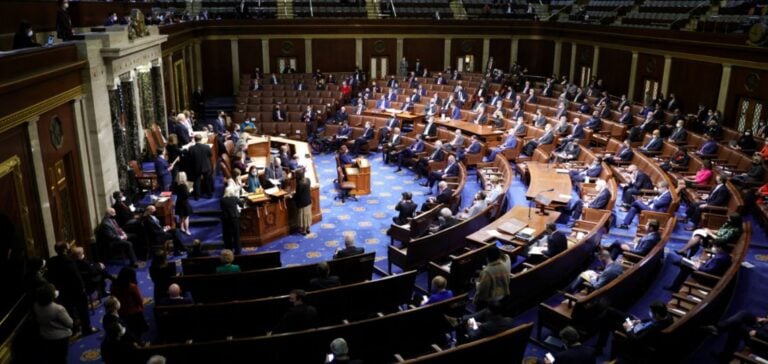A US congressional committee has launched an investigation into whether oil and gas companies collaborated to artificially inflate gas prices. The investigation, led by Democratic Representative Frank Pallone, targets seven major US oil companies: BP America, Shell USA, Chevron, Occidental Petroleum, Devon Energy, Hess and ExxonMobil. The investigation focuses on the actions of former Pioneer Natural Resources CEO Scott Sheffield, who was barred by the Federal Trade Commission (FTC) from joining ExxonMobil’s board of directors after its acquisition of Pioneer.
FTC accusations
The FTC accuses Sheffield of colluding with OPEC and its allies to align US oil production with OPEC and OPEC+ production agreements. According to the FTC, Sheffield had organized anti-competitive production cuts between US crude oil producers to favor Pioneer’s profits, to the detriment of US consumers. Evidence includes text messages, face-to-face meetings, WhatsApp conversations and public statements.
Congress actions
Frank Pallone asked the six non-ExxonMobil companies to provide all communications, meeting schedules, legal advice and production strategies between current or former employees, as well as with OPEC andOPEC+ representatives. He also demanded details of the integration of former Pioneer employees into the ExxonMobil structure and the measures taken to avoid a repetition of Sheffield’s alleged behavior.
Answers and reactions
ExxonMobil said it learned of the investigation from the FTC and denied any illegal conduct. The company’s declaration states that the allegations are incompatible with their business practices. The FTC, for its part, pointed out that Sheffield had pushed for anti-competitively coordinated production cuts, affecting American households and businesses.
Political and economic implications
This survey comes against a backdrop of growing political pressure to redirect responsibility for high gasoline prices. The Biden administration has sought to closely monitor the U.S. gasoline market and combat any illegal conduct that might contribute to higher prices. The administration’s sale of 180 million barrels of oil by 2022 and the liquidation of the Northeast Coast fuel reserve are part of efforts to stabilize pump prices.
Consequences for oil companies
If the investigation reveals collusion between US oil companies, it could have major consequences for the industry, including fines and regulatory reform. Companies will need to demonstrate greater transparency and ethical business practices to regain the trust of consumers and regulators. This survey underlines the importance of maintaining fair competition in the energy market to protect American consumers.
Congressional investigation into possible collusion by US oil companies reveals major concerns about gas price manipulation. The results of this survey could have significant repercussions for the energy industry and for consumers, influencing future policies and business practices in the oil sector.






















